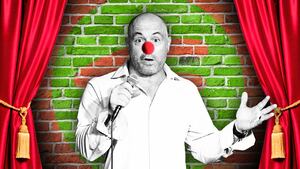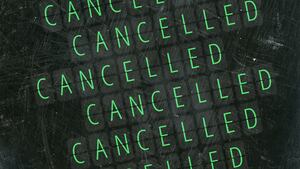The “facts don’t care about your feelings” GOP is literally using the force of law to suppress the teaching of facts. And they’re doing it to protect the delicate sensibilities of “patriotic” parents.
Republican legislatures and governors across the country claim to be fighting the nefarious forces of “wokeness,” “critical race theory,” and The 1619 Project by passing laws that forbid the teaching of “anti-American” ideas in public schools. But nearly every one of these laws is written with such deliberate vagueness that their meanings can be interpreted in any number of different ways, while achieving the same effect: scaring the shit out of teachers who might want to get a little real with their American history lessons.
To be sure, the way our educational system is set up allows local school districts—presumably with community input—to have discretion over what’s taught in public schools. What’s problematic is when states pass laws banning the teaching of “divisive topics” or any “negative account or representation of the founding and history of the United States of America” or “revisionist history of America’s founding.” That doesn’t leave much room for dissent, debate, or intellectual curiosity.
What all of these infuriatingly mush-mouthed bills have in common is the belief that there is One True American History, and any deviation from that unimpeachable truth might as well be written by Karl Marx. I get that some people really need to believe in the Shining City on a Hill myth, or maybe they just see the six or seven “radical leftists” in Congress as the harbingers of encroaching Stalinism, or perhaps they’ve just got the willies from seeing the ghost of Howard Zinn lurking around every corner.
But there is obviously a vast middle ground between importing an Angela Davis lecture into a fifth grade social studies class and teaching children a mindlessly jingoistic version of American history.
When learning about the unsavory aspects of U.S. history during my public school education, I gleaned that America had an unfortunate period of chattel slavery, and then some stuff happened to end it, followed by some backward Southern laws that treated Black people as second-class citizens, which were ended thanks to the heroism of Martin Luther King, Jr.
And then everything was fine. Nothing else to see. Move right along.
I didn’t learn much, if anything, about the Red Scare, the immoral and catastrophic failure that was the Vietnam War, or the lack of basic workers’ rights prior to the early 20th century labor movements. But I don’t doubt that my classmates and I could have handled such knowledge without rushing to burn the first American flag we saw.
It all seems so silly in hindsight. Kids in many other countries can handle learning the truth about the good, the bad, and the ugly of their nations’ history without their parents being terrified that they’ll be indoctrinated by “unpatriotic” educators.
What the GOP-orchestrated educational speech bans do is create a false binary between “pro” and “anti”-American history, flattening all rational analysis and discouraging student engagement in the process.
It’s all part of what PEN America has called “compulsory patriotism.” In a report released this week, the free speech rights advocacy group wrote that “the purpose of these bills is not simply to cultivate patriotism. Rather, it is to make patriotism—or more specifically, a knee jerk and uncritical form of patriotism—compulsory.”
The report notes that the U.S. has a long record of “censoriousness centered on patriotic sentiment”—such as “the Sedition Act of 1918…used to imprison antiwar protestors during World War I,” as well as laws that mandated standing for the Pledge of Allegiance (still one of the creepiest and most ironic traditions for a country that prides itself on rugged individualism), and Cold War-era laws that demanded teachers swear “loyalty oaths” to America.
A bill currently under consideration in New Hampshire is literally titled "AN ACT relative to teachers' loyalty" and its 11-word summary states a "prohibition on teacher advocacy of subversive doctrines." Who gets to decide what's "subversive"? If another recently passed New Hampshire speech ban is an indication—any triggered parent would be empowered by the law to sue. It would seem that imposing a chilling effect on speech is the point.
PEN America’s determination is that, “The current wave of educational gag orders has renewed this threat to America’s educational institutions.”
The U.S. is an outlier among other nations in how we treat the principle of freedom of speech. We have a very high bar to prove libel, our press is afforded significant protections, and the very worst people are largely free to express the most vile ideas—so long as they don’t consist of direct and immediate incitements to violence. A lot of these freedoms aren’t very popular these days, particularly among the left—a large portion of which mistakenly believes we can legislate “hate” into oblivion.
But free speech is like due process in that regard—everybody gets it, even the bad people. Period. If it’s a right enjoyed by everyone and not a privilege afforded only to the previously-approved, then it’s the greatest tool available for the marginalized and oppressed.
That Republicans are justifying speech bans in schools as somehow a defense of “free speech” is perverse.
The same people who won’t stop telling you how much they love America shouldn’t be afraid of teaching kids about the tough-to-hear aspects of American history—and they sure as hell shouldn’t trample on the First Amendment to protect myopically patriotic parents’ "feelings."
These fear-based laws expose the hyper-nationalist right’s inferiority complex about America. By insisting that children aren’t taught “divisive concepts” or “revisionist history,” they’re revealing how little faith they have in the American experiment.







